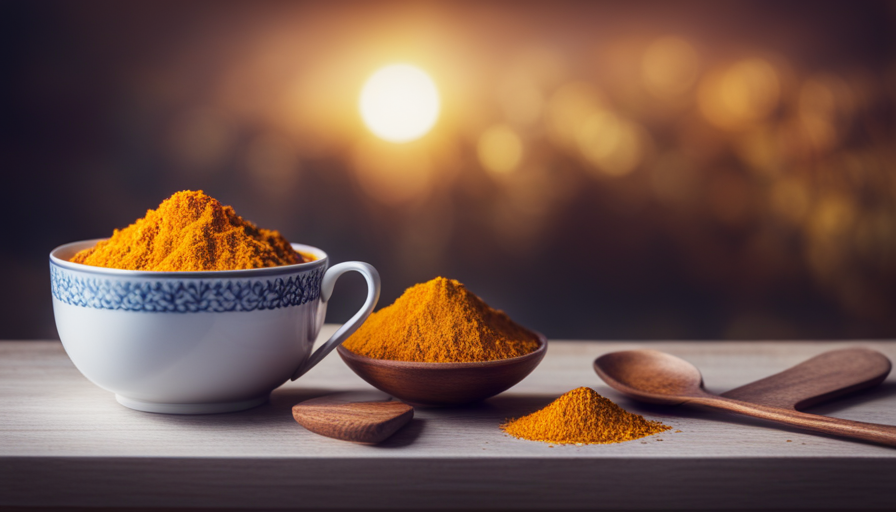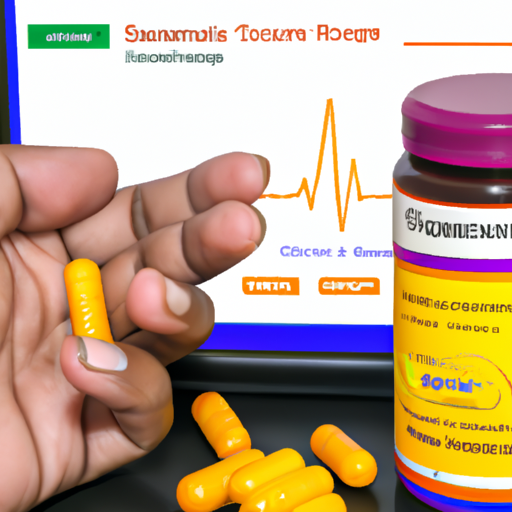Have you ever found yourself in the midst of a stressful situation, desperately seeking a moment of calm? Imagine this scenario: you’re about to undergo surgery, and your anxiety levels are through the roof. In moments like these, we often turn to various methods to find solace and relaxation.
One such method that has gained popularity is consuming chamomile tea. Known for its soothing properties, chamomile tea has been hailed as a natural remedy for anxiety and stress. But here’s the burning question: can I drink chamomile tea before surgery?
In this article, we will explore the potential interactions chamomile tea may have with anesthesia, its effects on blood pressure and heart rate, impact on blood clotting and wound healing, potential for allergic reactions, and alternative options for relaxation and stress relief. So, if you’re curious about whether or not chamomile tea is safe to consume before surgery, keep reading to find out more.
Key Takeaways
- Chamomile tea is a popular method for relaxation and stress relief, but it can have interactions with anesthesia and enhance its effects during surgery.
- It is important to inform healthcare providers about any herbal supplements or teas regularly consumed, including chamomile tea, before surgery.
- Chamomile tea may have mild hypotensive effects and a calming effect on the heart, potentially reducing heart rate.
- Chamomile tea contains compounds with anti-inflammatory properties, which can benefit wound healing, but it may also inhibit platelet aggregation and affect blood clotting.
Understanding the Potential Interactions with Anesthesia
Before going under the knife, it’s important to consider the potential interactions between chamomile tea and anesthesia. Chamomile tea is commonly consumed for its calming and soothing effects, but it can also have an impact on the body’s response to anesthesia.
Chamomile contains compounds that can act as sedatives and may enhance the effects of anesthesia, leading to increased drowsiness and prolonged recovery time. It’s crucial to inform your healthcare provider about any herbal supplements or teas you regularly consume, including chamomile tea, to ensure the safest and most effective anesthesia experience.
Additionally, considering the effects of chamomile tea on blood pressure and heart rate is important, as these factors can also influence the administration and effectiveness of anesthesia.
Considering the Effects on Blood Pressure and Heart Rate
Considering the potential impact on blood pressure and heart rate, it’s important to be mindful of the effects of chamomile tea. Here are three key points to consider:
-
Hypotensive effects: Chamomile tea has been found to have mild hypotensive effects, meaning it may lower blood pressure. This can be beneficial for individuals with high blood pressure, but it’s important to monitor your blood pressure closely before surgery.
-
Heart rate effects: Chamomile tea may also have a mild calming effect on the heart, potentially reducing heart rate. While this can be beneficial for individuals with an elevated heart rate, it’s essential to ensure that your heart rate remains within a safe range before undergoing surgery.
-
Individual variability: It’s important to note that the effects of chamomile tea can vary from person to person. Factors such as dosage, frequency of consumption, and individual sensitivity can influence its impact on blood pressure and heart rate.
Considering these effects on blood pressure and heart rate, it’s crucial to assess the impact of chamomile tea on blood clotting and wound healing.
Assessing the Impact on Blood Clotting and Wound Healing
To properly evaluate the effects of chamomile tea on blood clotting and wound healing, it’s essential to understand its impact on the body. Chamomile tea contains compounds that have anti-inflammatory properties, which can be beneficial for wound healing.
Additionally, chamomile tea has been shown to inhibit platelet aggregation, which may have an impact on blood clotting. However, more research is needed to determine the extent of these effects and how they may specifically affect individuals before surgery.
It is important to consult with a healthcare professional before consuming chamomile tea prior to surgery, as they can provide personalized advice based on your specific health needs.
Moving forward, exploring the potential for allergic reactions is another crucial step in understanding the overall impact of chamomile tea on surgical outcomes.
Exploring the Potential for Allergic Reactions
One important aspect to consider is the potential for individuals to experience allergic reactions when consuming chamomile tea. While chamomile tea is generally considered safe for consumption, some people may have an allergic reaction to the plant.
Allergic reactions can vary in severity, ranging from mild symptoms like itching and hives to more severe reactions like difficulty breathing and swelling of the throat. It is important to note that allergic reactions to chamomile tea are rare, but they can occur.
If you have a known allergy to plants in the Asteraceae family, such as ragweed or daisies, it’s advisable to avoid chamomile tea to prevent any potential allergic reactions. Consulting with your surgeon or anesthesiologist is crucial to ensure the best outcomes for your surgery.
Consulting with Your Surgeon or Anesthesiologist
Before undergoing any surgical procedure, it’s essential to consult with your surgeon or anesthesiologist to discuss any potential risks or concerns. For example, a patient with a history of respiratory issues may need to have a detailed conversation with their surgeon to ensure that the appropriate precautions are taken during the surgery to minimize any potential complications.
It’s important to disclose all medications and substances you’re consuming, including chamomile tea. While chamomile tea is generally considered safe for most people, it’s always best to consult with your healthcare provider before surgery. They can provide specific guidance based on your individual circumstances and medical history.
Exploring alternative options for relaxation and stress relief can be beneficial prior to surgery, and your healthcare provider can offer recommendations to help you prepare.
Exploring Alternative Options for Relaxation and Stress Relief
If you’re looking for other ways to relax and relieve stress, consider exploring alternative options like meditation or deep breathing exercises. These techniques have been shown to help calm the mind and reduce anxiety before surgery.
Meditation involves focusing your attention and eliminating the stream of thoughts that may be causing stress. Deep breathing exercises, on the other hand, promote relaxation by slowing down your heart rate and reducing tension in your muscles.
Both of these techniques are simple and can be done anywhere, including in the comfort of your own home. By incorporating these practices into your daily routine, you may find that they help you feel more calm and prepared for your upcoming surgery.
Transitioning into following pre-operative guidelines and recommendations, it’s important to remember that these alternative options should be used in addition to, and not as a substitute for, the advice of your surgeon or anesthesiologist.
Following Pre-Operative Guidelines and Recommendations
To make sure you’re fully prepared for your surgery, it’s important to follow the pre-operative guidelines and recommendations provided by your healthcare team. These guidelines are designed to ensure the best possible outcome for your surgery and to minimize any risks or complications. One important aspect of these guidelines is to avoid certain foods and beverages, including chamomile tea, before surgery. While chamomile tea is often touted for its calming and relaxing properties, it can interfere with the anesthesia and other medications used during surgery. It’s best to follow your healthcare team’s recommendations and avoid chamomile tea in the days leading up to your surgery. If you have any questions or concerns, be sure to discuss them with your healthcare provider.
| Pre-Operative Guidelines and Recommendations |
|---|
| Avoid chamomile tea before surgery |
| Follow instructions for fasting |
| Take any prescribed medications as directed |
| Inform your healthcare team of any allergies |
| Stay hydrated and get plenty of rest |
Frequently Asked Questions
What are some alternative options for relaxation and stress relief before surgery?
Some alternative options for relaxation and stress relief before surgery include deep breathing exercises, listening to calming music, practicing meditation or mindfulness, and engaging in gentle physical activities like yoga or tai chi.
Can chamomile tea interact with anesthesia during surgery?
Chamomile tea may interact with anesthesia during surgery, potentially leading to increased sedation. It’s important to consult with your healthcare provider before consuming chamomile tea or any other herbal products before surgery.
Does chamomile tea have an impact on blood clotting and wound healing?
Chamomile tea does not have a significant impact on blood clotting or wound healing. However, it is still important to consult with your doctor before consuming any herbal tea before or after surgery.
Can chamomile tea cause allergic reactions in some individuals?
Chamomile tea can cause allergic reactions in some individuals. It is important to be aware of any potential allergies before consuming chamomile tea or any other herbal product.
How important is it to consult with your surgeon or anesthesiologist before consuming chamomile tea before surgery?
Consulting with your surgeon or anesthesiologist before consuming chamomile tea before surgery is crucial. They have the necessary knowledge and expertise to inform you about any potential risks or interactions that could affect your surgery and recovery.
Conclusion
In conclusion, it’s absolutely crucial that I avoid drinking chamomile tea before my surgery. The potential interactions with anesthesia could be catastrophic, causing me to wake up in the middle of the procedure or experience complications. Furthermore, chamomile tea’s effect on blood pressure and heart rate could lead to a dangerously erratic heartbeat.
Additionally, the impact on blood clotting and wound healing could result in prolonged recovery time. It’s best to consult with my surgeon or anesthesiologist for alternative options and strictly follow pre-operative guidelines. Safety should always be the top priority!










